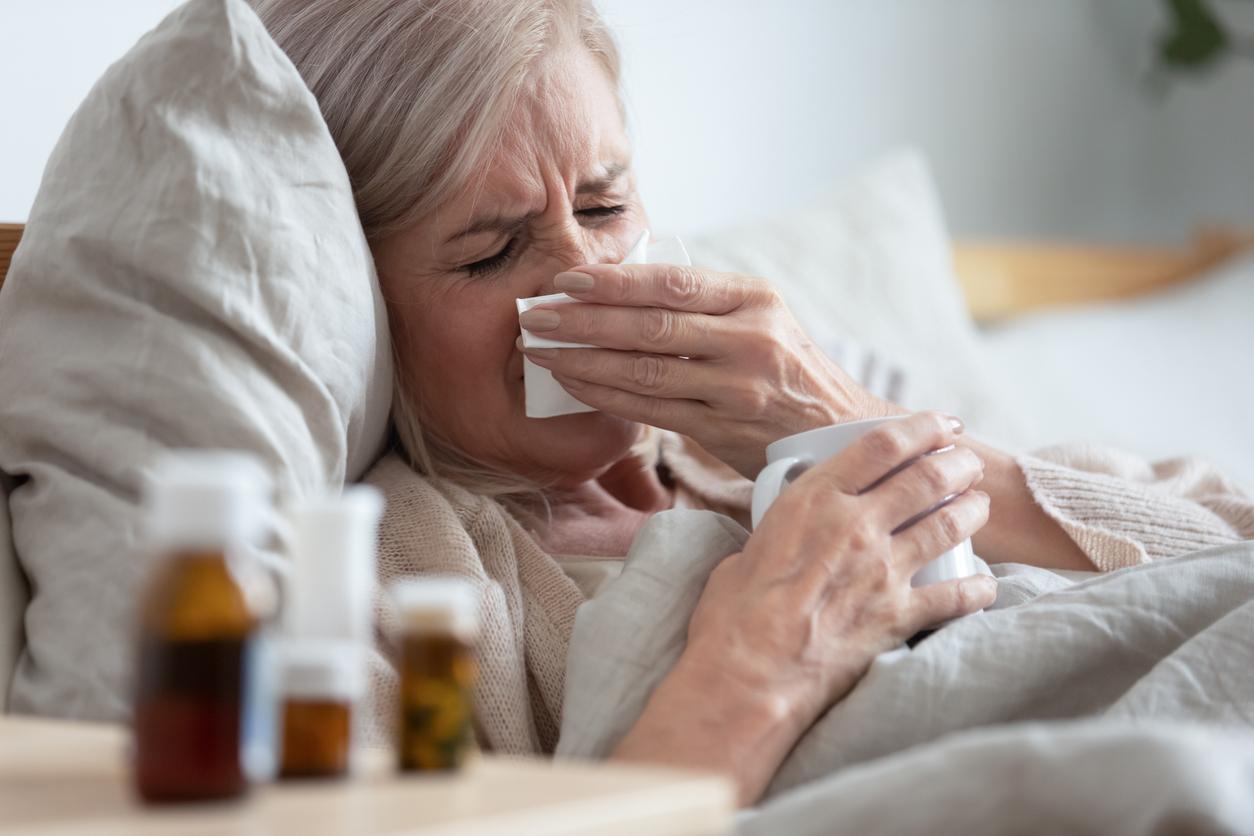
Why you should consider the flu vaccine
Peer reviewed by Dr Sarah Jarvis MBE, FRCGPLast updated by Dr Laurence KnottLast updated 26 Sept 2017
Meets Patient’s editorial guidelines
- DownloadDownload
- Share
- Language
- Discussion
After nearly 40 years in general practice, I think I’ve heard them all. “I don’t need a flu jab, doc, I’m as fit as a flea.” “I’ve never had a flu jab, and I’ve never had the flu”. And best of all: “I knew someone who never had the flu till he had the jab, and now he gets flu every year.”
In this article:
These mythical tales are bane of most doctors’ lives. They're often cited by patients who don’t like the advice they are being given, but can’t think of a good reason why they should not take it. There's a Mr Miracle out there who seems to smoke 40 cigarettes a day, eats burgers every day for lunch washed down with a bottle of whisky, and has never had a day off sick in his life.
It is very difficult for doctors to respond sensibly to these stories. All we can do is trot out the same boring – but nevertheless evidence-based – advice.
Continue reading below
Your immunity wanes as you get older
Even if you have never had a day’s illness in your life, your chance of catching flu increases as you get older. One study found that people over the age of 65 who had a flu jab consulted their GPs less often with what the scientists call ‘flu-related illnesses’ (basically flu, bronchitis and pneumonia) than those of similar age who hadn’t.
People with chronic conditions are more likely to get flu
It has long been known that flu-related illnesses are commoner in people who already have long-term conditions (what medical bods call co-morbidities) such as chronic lung disease, heart disease, diabetes or immune system deficiencies.
Co-morbidities themselves are commoner in people over the age of 65, so the combination of getting older, developing age-related diseases and remaining unimmunised creates a perfect storm for the flu bugs waiting to strike.
Continue reading below
The benefits outweigh the risks
If patients are to be believed (and I do believe them, most of the time) they all have an acquaintance who turned into Dr Jekyll after a flu jab.
The overwhelming evidence is that serious side effects are extremely rare. The jury is still out about just how effective flu jabs are in protecting older people from flu - partly because effectiveness seems to vary from year to year, depending on the strains used in the vaccine.
In 2016, a strain of virus called Australia H2N3 (AH2N3 to its friends) decided to change its antigen coat (the outer protective layer of the bag) at the last minute. The vaccine makers were unable to keep up with this change which made the jab less effective than the previous year. In 2017 the new strain of H2N3 was incorporated into the flu jab, which should make it more effective, especially for older people.
Even if they don't offer quite the same protection as they do in younger people, you're still less likely to get flu if you've been immunised, whatever your age. And given the choice between having a low side effect jab with a slight niggle about effectiveness, or a proven risk of catching a disease which could kill me, I know which way I would jump.
“It is crucial that we remember that vaccination remains the best protection we have against the unpredictable flu virus,” said Dr Christopher Chiu, clinical senior lecturer and honorary consultant in infectious diseases at Imperial College London and spokesperson for the British Society for Immunology. “Hundreds of virologists around the world are constantly working to make vaccines safer, more reliable and more effective. Just because the process isn’t perfect doesn’t mean it’s not saving hundreds of thousands of lives a year. I would urge anyone in the at-risk categories to get their free jab before this winter.”
Older people are also more likely to have serious complications from flu. I’ve included this point for those brave soldiers who say they’ve had flu, it’s not so terrible and they’ll take their chances.
The flu can be fatal
Professor Dame Sally Davies, the UK’s Chief Medical Officer of Health, has other ideas. “Let me be crystal clear – flu kills,” she said. “For many people it is an unpleasant illness but for the most vulnerable in society – small children, the elderly, those with long-term health problems and for pregnant women – it is extremely dangerous and can be lethal."
"Getting the vaccine is the best way to protect yourself and your loved ones from catching flu and I would urge everyone who is offered the vaccine free on the NHS to get vaccinated.”
Studies found that of the 250,000-500,000 people who die across the world from influenza every year, 90% are over the age of 65. If that statistic doesn’t get you rolling your sleeve up, I don’t know what will.
Patient picks for Flu and vaccination

Infections
What is freshers' flu and how long does it last?
From meeting your future besties to enduring messy sports team initiations, freshers’ week is an exciting time. Freshers' flu can sometimes ruin that fun, but there are things you can do to try to dodge start-of-term illnesses, and help yourself bounce back if it does strike you down.
by Lynn Stephen

Infections
Will we have a bad flu season this year?
With COVID-19 hitting the headlines, seasonal flu has taken a back seat in our minds. But whereas last winter there were fewer cases of seasonal flu than usual, this illness remains a substantial threat which causes 11,000 deaths a year in the UK on average. Scientists are predicting a significant surge in flu cases this autumn and winter, but why is the virus likely to be so virulent? And what should we do to keep ourselves and others safe?
by Gillian Harvey
Continue reading below
Article history
The information on this page is peer reviewed by qualified clinicians.
26 Sept 2017 | Latest version

Ask, share, connect.
Browse discussions, ask questions, and share experiences across hundreds of health topics.

Feeling unwell?
Assess your symptoms online for free
Sign up to the Patient newsletter
Your weekly dose of clear, trustworthy health advice - written to help you feel informed, confident and in control.
By subscribing you accept our Privacy Policy. You can unsubscribe at any time. We never sell your data.